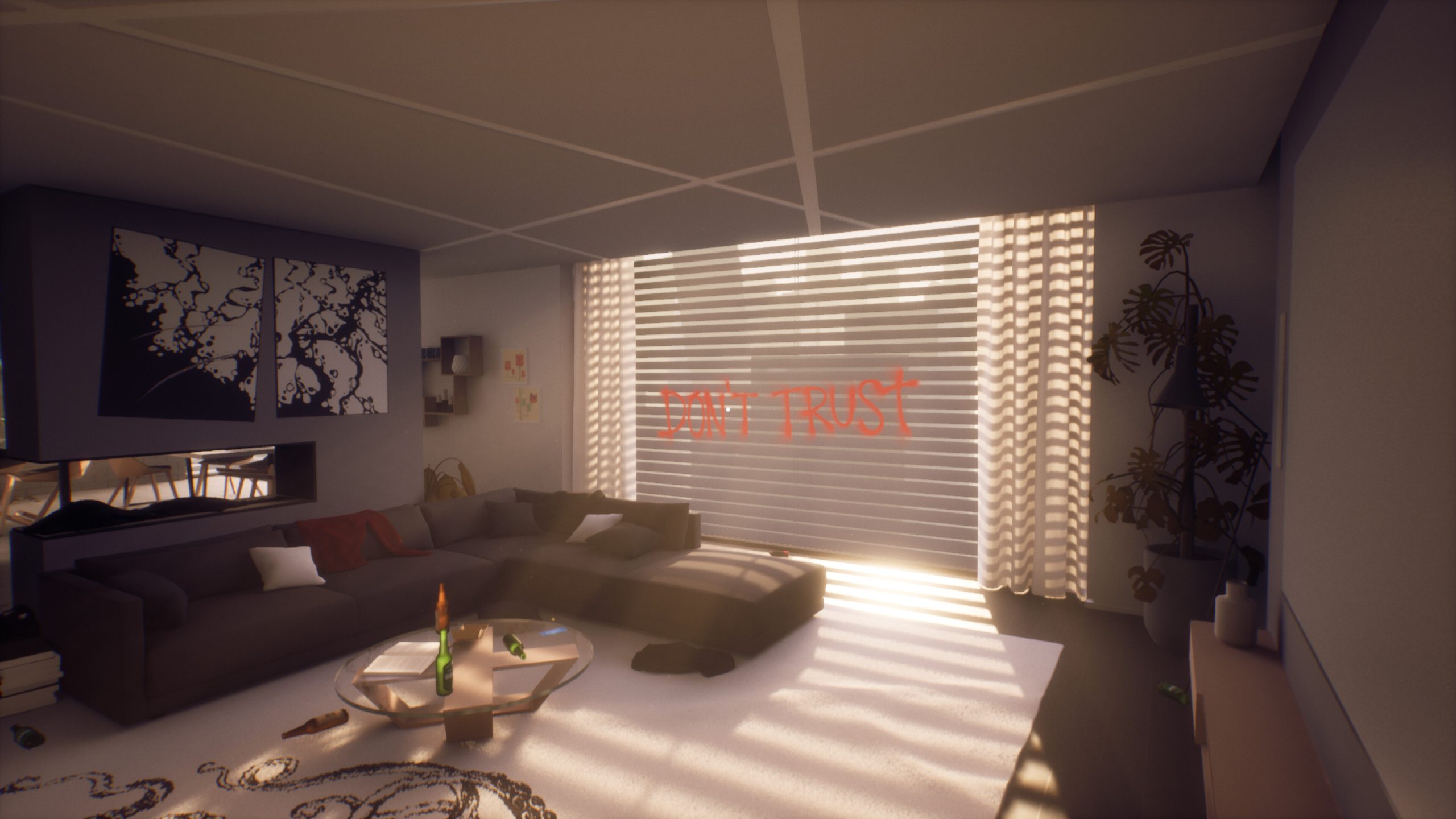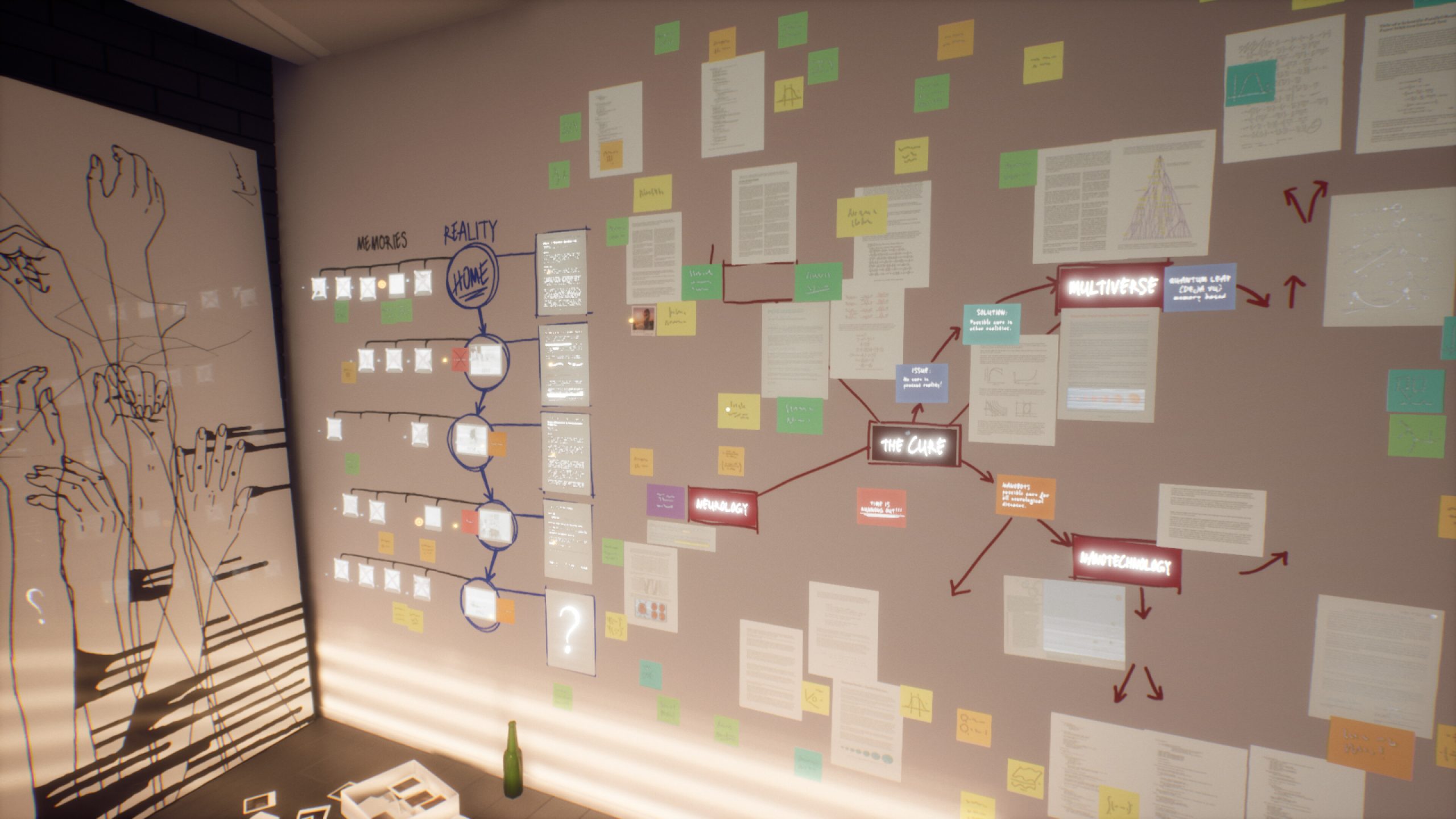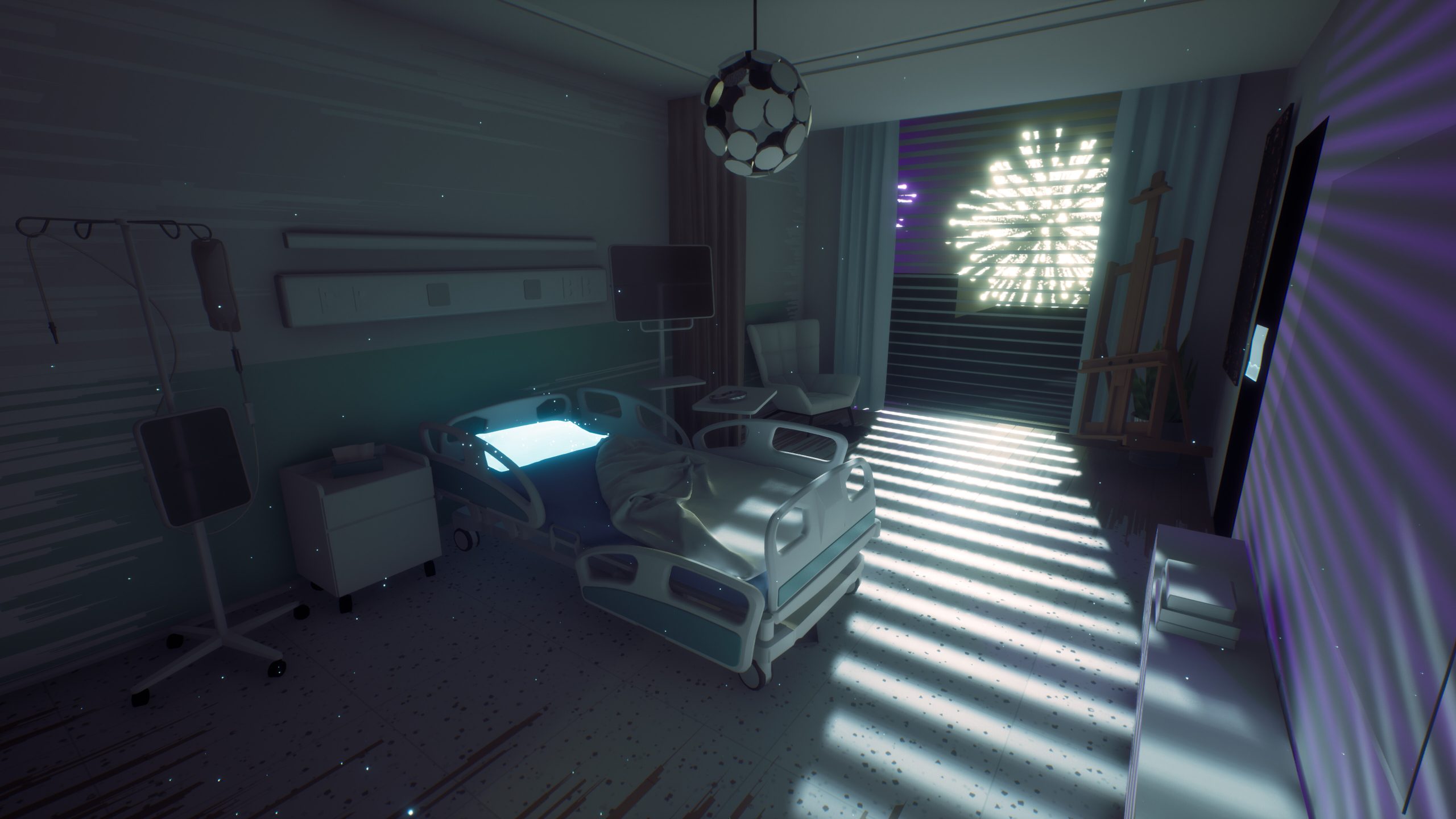Official Review
That, or Marvel demonstrated an audience appetite for metaverse stories and now creatives are exploring the concept itself. Of course, why Marvel went down that path, and why audiences responded so well with it, can be arguably traced back to point #1…
Anyway. I'm not about to spend time deconstructing metaverse narratives in the arts. Frankly this is right up there with the most dull, contrived approach to plotting there is. Whatever the reason behind it, The Gap uses metaverse theories as a foundation to weave a psychological thriller story. It's a probing game in some ways, but I would suggest it's not as smart as it wants you to think it is.

You play as a fellow called Joshua, in a fragmented, non-linear narrative that makes it clear from the outset that he is anything but a reliable narrator. One of the first places you visit is his home sometime in the "current" (actually the future), and if the pill and alcohol bottles strewn around everywhere weren't a clue that this guy has issues, you're told pretty early on that his partner has left him, and his daughter is… somewhere? It's all a bit hazy about what's going on, but that won't last long, as Josh starts have flashbacks to key moments in his life as he explores his apartment, reads things and interacts with items laying around.
Form there we discover that Josh's family suffers from a hereditary degenerative condition and that Josh's big theory to solve this is wrapped up with unlocking the secrets of the metaverse.
This in itself seems noble enough, but there are enough ominous signs around the "real world" apartment that suggest that, in the very best case scenario, good intentions took a nosedive off a steep cliff. Most of the rest of the game is unpacking that and coming to the truth of it.

It's just as well that The Gap has a compelling narrative, albeit one that's almost slavishly committed to parroting all the modern best practice techniques and beats that the developers could cram into there. Beyond the narrative is a game that is simply not enjoyable to play, and that actively gets in the way at times.
The disheveled apartment acts as a "hub." As you find objects within it, or find the "keys" to unlock inaccessible areas (such as files on a computer), Joshua will have a flashback, which will serve one of two purposes: firstly, it will fill you in on some of the narrative, and secondly, it'll likely leave you some clue that you'll need to apply somewhere else to unlock more memories.
For one simple example – one early flashback drops you into a rabbitry. This is Joshua looking back to the time he bought his kid daughter a rabbit as a pet. The problem is that you've got to figure out which rabbit it is in the rabbitry that he picked out, and that's going to require you find a clue from somewhere else. You assume that at some point you'll find a photo of said little girl cuddling her bunny and bank this memory to return to later on once you've found said photo.

As you explore a wall in the apartment will become covered with memories, notes, and pins – detective style – allowing you to jump around through all these memories at will. Thanks to this structure, you get a "key moments" understanding of lives of Joshua and the people around him, but therein lies the really big problem with The Gap: By focusing exclusively on key moments, we never really get to know the characters behind them. Happy, horrible, sad and dramatic things happen to them, but because we never get a sense of what normalcy is like to ground these people we never get the chance to emotionally connect with them.
It also doesn't help that the voice acting is generally poor, and the game's a little too in love with the science, so it regularly forgets that what it's trying to tell is a deeply personal story. It's only a short game at around three or four hours (depending how long it takes you to get into the groove of the puzzles and structure), and that's fine. I applaud game developers who are willing to call "cut" on their game when they're done with the story they intended for it, rather than aim for an arbitrary amount of content that the "gamer" wants. However, too much energy is misdirected in The Gap, leaving it feeling "short" and emotionally unsatisfying.
The Gap is in an intriguing and compelling idea. Unfortunately, it's underdeveloped, and structured in a way that undermines something critical for any psychological thriller: if you're not connected to an invested in the characters, then you're not going to care about what they're going through enough for it to chill you. The Gap also comes across as something that is badly trying to be analyzed in intellectual terms, but fails to land on a distinctive theme that it can call its own. It's great to see projects like this, from a games-as-art perspective, but it's not one of the finest examples of that, either.


